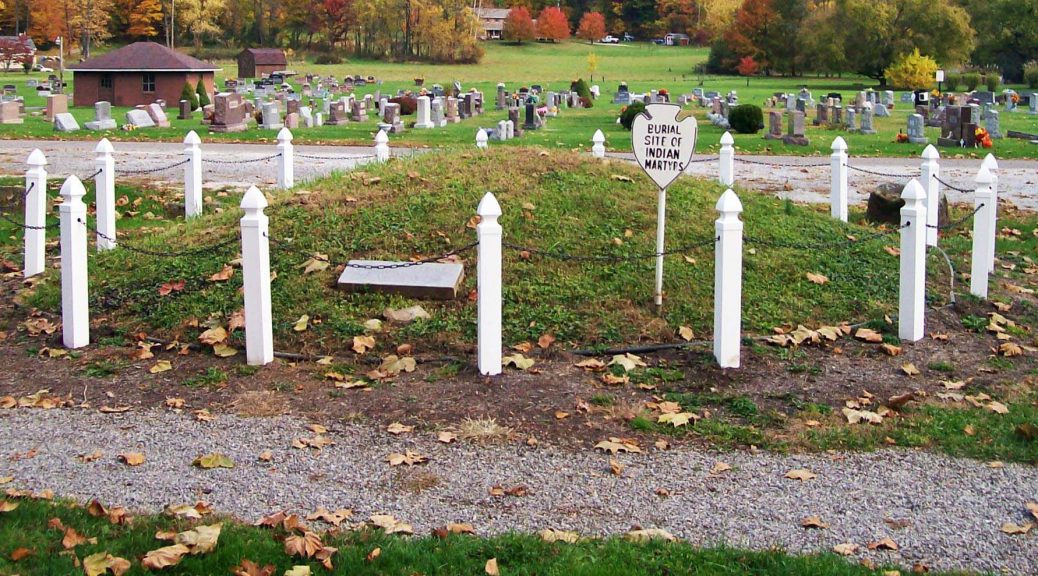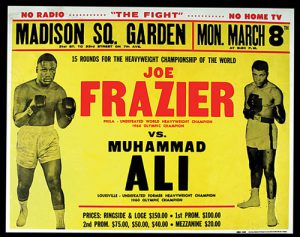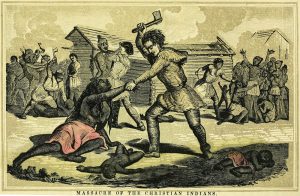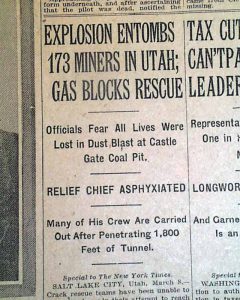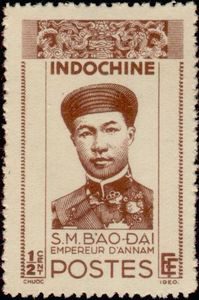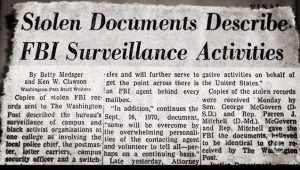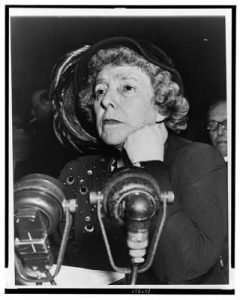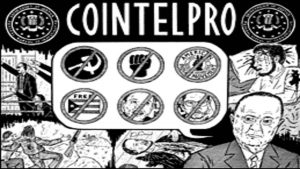March 8 Peace Love Art Activism
BLACK HISTORY
John Casor
March 8, 1665: John Casor, a man enslaved in the Virginia Colony, sued for his freedom in 1655, arguing that he was an indentured servant who had been forced by his “owner,” Anthony Johnson, to serve past his term. The court ruled against Casor, declared him a slave for life, and ordered him to return to Johnson.
The first Africans brought to Virginia were treated as indentured servants. After working their contracts for passage to Virginia, each was granted fifty acres of land and released to live free. During Casor’s lifetime, slavery became entrenched and indentured servitude a less economical source of labor. In their ruling in Johnson v. Parker on March 8, 1655, the court of Northhampton County upheld Johnson’s right to hold Casor as a slave, ordering “John Casor, Negro, forthwith return unto the service of the said master Anthony Johnson.”
In 1640, prior to Casor’s civil suit, the Virginia Governor’s Council sentenced John Punch, a black indentured servant accused of attempting to escape with two other indentured servants who were white. Punch was sentenced to life servitude as punishment, while the two white indentured servants were only sentenced to four extra years of labor. The fates of Casor and Punch signaled a shift from indentured servitude to a form of racialized slavery that would come to shape America. (see September 13, 1663)
March 8 Peace Love Art Activism
Browder v. Gayle
March 8, 1956: Gray and Langford amend Browder v. Gayle, removing Jeanetta Reese from the list of plaintiffs. (BH, see Mar 12; see MBB, for expanded chronology; B v G, see Mar 27)
Malcolm X
March 8, 1964: Malcolm X suspended from the Nation of Islam. (NYT article) (see Mar 12)
George Whitmore, Jr
March 8, 1965: Patrolman Frank Isola testified before Justice Dominic Rinaldi that he did not arrest George Whitmore, Jr. upon their initial encounter, five hours after the Borrero assault, because Whitmore “did not appear to be same man” he had seen fleeing the scene.
Exactly 18 years later the story continued. On March 8, 1973, CBS aired “The Marcus-Nelson Murders,” a three-hour film based on the Wylie-Hoffert murders with Telly Savalas staring as Detective Lieutenant Theo Kojack (later shortened to Kojak) — a character loosely based on Detective Cavanagh, who had been instrumental in developing the evidence that the murders were committed not by George Whitmore, Jr. but by Richard Robles.
Leon Vincent, superintendent of Green Haven prison in upstate NY, permits George Whitmore to go to the sick ward and watch the show in privacy. (see Whitmore for expanded story)
James H Meredith
March 8, 1967: Republican leaders in New York announced that Meredith would run against Adam Clayton Powell for a seat in Congress. He will withdraw from the race. (see Apr 5)
Vernon Dahmer
On January 10, 1966 Klansmen had firebombed Vernon Dahmer‘s home and attacked his store in Kelly Settlement, Hattiesburg, Mississippi. Dahmer was the President of the NAACP chapter in Hattiesburg, and helped black voters by letting them pay their poll tax at his store. Four of Dahmer’s sons were serving overseas and had protective escort from the airport to their father’s side.
On March 8, 1968 Billy Roy Pitts pleaded guilty to charges of murder and arson in the firebomb death of Dahmer. (BH, see Mar 28; Dahmer, see May 10, 1969)
Muhammad Ali
March 8, 1971: Ali fought Joe Frazier, the fighter who was given Ali’s title after Ali declined draft induction. The bout between the two is known as the “Fight of the Century.” A left hook by Frazier knocked Ali down in the 15th round. Frazier won by unanimous decision. (NPR Joe Frazer obit) (BH, see Apr 20; Ali, see June 28)
March 8 Peace Love Art Activism
Native Americans
Gnadenhutten (Ohio) Massacre
March 8, 1782: the Gnadenhutten (Ohio) massacre took place. Pennsylvania militia attacked Lenape at the Moravian missionary village and brought them to one of 2 “killing houses”, one of men and the other for women and children. There the militia tied the Indians, stunned them with mallet blows to the head, and killed them with fatal scalping cuts. In all, the militia murdered and scalped 28 men, 29 women, and 39 children. They piled the bodies in the mission buildings and burned the village down. They also burned the other abandoned Moravian villages. Two Indian boys, one of whom had been scalped, survived to tell of the massacre.
No criminal charges were filed.
US Constitution
1789: US Constitution and references to Native Americans/Indians:
- Article 1 Section 3: 3: Representatives and direct Taxes shall be apportioned among the several States which may be included within this Union, according to their respective Numbers, which shall be determined by adding to the whole Number of free Persons, including those bound to Service for a Term of Years, and excluding Indians not taxed. [Indians not counted in population]
- Article 1, Section 8: To regulate Commerce with foreign Nations, and among the several States, and with the Indian Tribes; [Indians are treated as a foreign group] (see February 27, 1803)
Indians of All Tribes
March 8, 1964: a small group of Sioux demonstrators affiliated with a San Francisco organization known as Indians of All Tribes (IAT) occupied Alcatraz Island for four hours, asserting that the land was due to be returned to the Sioux people. The temporary demonstration was to raise awareness of government violations of binding treaties – but a longer protest followed. (NA, see March 5, 1965; Alcatraz, see November 9, 1969)
March 8 Peace Love Art Activism
Feminism
Voting Rights
March 8, 1884: Susan B. Anthony began her address before the Judiciary Committee of the House of Representatives. Anthony argued for an amendment to the U.S. Constitution granting women the right to vote. Anthony’s argument came sixteen years after legislators had first introduced a federal woman’s suffrage amendment.
She began her testimony with the following words: We appear before you this morning…to ask that you will, at your earliest convenience, report to the House in favor of the submission of a Sixteenth Amendment to the Legislatures of the several States, that shall prohibit the disfranchisement of citizens of the United States on account of sex. (Feminism, see Sept 20; Voting Rights, see “in May 1890”)
International Women’s Day 2017
March 8, 2017: International Women’s Day 2017 was marked as “A Day Without a Woman,” and encouraged participants to skip work or school and avoid purchasing anything in stores or online to show just how critical a role women play in society. (see Apr 10)
Biden Executive Orders
March 8, 2021: President Biden marked International Women’s Day by signing two executive orders geared toward promoting gender equity, both in the United States and around the world.
The first executive order established a Gender Policy Council within the White House, reformulating an office from the Obama administration that was later disbanded by the Trump administration, and giving it more clout.
The second executive order was directed at the Department of Education and was expressly aimed at reversing policies on campus sexual assault and harassment that Donald Trump’s education secretary, Betsy DeVos issued last year. [NPR story] (next Feminism, see Apr 28)
March 8 Peace Love Art Activism
US Labor History
Needle trades workers
March 8, 1908: thousands of New York needle trades workers demonstrated for higher wages, shorter workday, and end to child labor. The demonstration became the basis for International Women’s Day. (see January 18, 1909)
Utah Fuel Co
March 8, 1924: three explosions at a Utah Fuel Co. mine in Castle Gate, Utah, kill 171. Fifty of the fatalities were native-born Greeks, 25 were Italians, 32 English or Scots, 12 Welsh, four Japanese, and three Austrians (or South Slavs). The youngest victim was 15; the oldest, 73 (see Apr 26)
Norris-La Guardia Act
March 8, 1932: Norris-La Guardia Act took effect. It proclaimed that yellow-dog contracts, which required a worker to promise not to join a union, were unenforceable, settling a long-standing dispute between management and labor. The law also limited courts’ power to issue injunctions against strikes. (see May 3)
United Farm Workers
March 8, 1979: César Chávez led 5,000 striking farm workers on a march through the streets of Salinas, CA. (see Sept 1)
US Women’s Soccer/Feminism
March 8, 2019: twenty-eight members of the world champion United States women’s soccer team filed a gender discrimination lawsuit in United States District Court in Los Angeles. In a statement released by the team the 28 players described “institutionalized gender discrimination” that they say had existed for years.
The discrimination, the athletes said, affected not only their paychecks but also where they play and how often, how they train, the medical treatment and coaching they receive, and even how they travel to matches. (next LH, see Apr 21; next Feminism, see Oct 18)
March 8 Peace Love Art Activism
Religion and Public Education
McCollum v. Board of Education
March 8, 1948: in an 8-1 decision McCollum v. Board of Education, the US Supreme Court decided a case related to the power of a state to use its tax-supported public school system in aid of religious instruction. The case was an early test of the separation of church and state with respect to education.
The case tested the principle of “released time”, where public schools set aside class time for religious instruction. The Court struck down a Champaign, Illinois program as unconstitutional because of the public school system’s involvement in the administration, organization and support of religious instruction classes. The Court noted that some 2,000 communities nationwide offered similar released time programs affecting 1.5 million students. (see September 27, 1948)
March 8 Peace Love Art Activism
FREE SPEECH
Irving Feiner
March 8, 1949: police arrested Irving Feiner after he made an inflammatory speech to a mixed crowd of 75 or 80 African Americans and white people at the corner of South McBride and Harrison Streets in Syracuse, New York. Feiner, a college student, had been standing on a large wooden box on the sidewalk, addressing a crowd through a loud-speaker system attached to an automobile. He made derogatory remarks about President Harry S. Truman, the American Legion, the Mayor of Syracuse, and other local political officials. Feiner urged that they rise up in arms and fight for equal rights.
Blocking the sidewalk and overflowing into the street in which there was oncoming traffic, the crowd became restless with some either voicing opposition or support for Feiner. An onlooker threatened violence if the police did not act. After having observed the situation for some time without interference, police officers, in order to prevent a fight, requested the petitioner to get off the box and stop speaking. After his third refusal, they arrested him and was convicted of violating 722 of the Penal Code of New York, which, in effect, forbids incitement of a breach of the peace.
Feiner claimed that his conviction violated his right of free speech under the First and Fourteenth Amendments to the United States Constitution. (FS, see May 16; Feiner, see January 15, 1951)
March 8 Peace Love Art Activism
Vietnam
Bao Dai
March 8, 1949: France recognized an ‘independent’ State of Vietnam, with emperor Bao Dai as head of government. (see January 18, 1950)
United States v. Seeger
March 8, 1965: in United States v. Seeger, the Supreme Court expanded the right of conscientious objections to military service. A unanimous Court embraced a broader definition of “supreme being” to include a “sincere and meaningful belief which occupies in the life of its possessor a place parallel to that filled by the God” of people who adhered to traditional religious faiths and who had been granted conscientious objector status in the past. (Daniel Andrew Seeger, the plaintiff, is no relation to the folk singer Pete Seeger.) The very limited scope of the right to conscientiously object to participation in war had been one of the major civil liberties crises during World War I. And during World War II, COs who were convicted and sent to prison staged hunger strikes to protest censorship and racial segregation in their prisons. (Vietnam, see Mar 9; Religion, see November 12, 1968)
China Beach
March 8, 1965: 3500 Marines land at China Beach to defend the American air base at Da Nang. They are the first U.S. combat troops in Vietnam and join 23,000 American military advisors already in Vietnam. (see Mar 8)
Media, Pennsylvania break-in
March 8, 1971: anti-Vietnam War activists raided the FBI office in Media, Pennsylvania and stole over 1,000 documents related to the FBI’s secret COINTELPRO program. The notorious COINTELPRO program had been approved by the Eisenhower administration on March 8, 1956 (ironically, exactly 15 years before the raid), and involved burglaries, illegal wiretapping, and other actions against people and organizations that FBI Director J. Edgar Hoover thought were subversive or dangerously radical. The Media documents stolen on this day were sent to several publications, and they provided the first hint about COINTELPRO.
Only one of the stolen documents actually contained the word COINTELPRO, and no one knew what it referred to. The first published news stories on COINTELPRO, in March 1971, and spurred further inquiries into the nature and extent of the program. It was finally fully exposed by the Senate Church Committee investigations that began on January 27, 1975. The Media raid was the only known activity by the Citizens’ Commission to Investigate the FBI. Despite a massive effort, the FBI never identified and arrested the people who did it. (see Mar 23)
March 8 Peace Love Art Activism
Cultural Milestone
March 8, 1950: Volkswagen, maker of the Beetle automobile, expanded its product offerings to include a microbus. Known officially as the Volkswagen Type 2 (the Beetle was the Type 1) or the Transporter, the bus was a favorite mode of transportation for hippies in the U.S. during the 1960s and became an icon of the American counterculture movement. (next CM, see In December 1953; next Beetle, see February 17, 1972; see Minibus for expanded story)
March 8 Peace Love Art Activism
Cold War
Dorothy Kenyon
March 8, 1950: Senator Joe McCarthy (R–Wisconsin), under pressure to document his claim of Communists working for the federal government, named Dorothy Kenyon as affiliated with at least twenty-eight “Communist-front” organizations. Since his February 9, 1950, speech that brought him to public attention, McCarthy had been claiming that he had a “list” of Communists in the Truman Administration. The number of people on the “list” kept changing and, until this day, he never identified a single person. Kenyon replied by calling McCarthy an “unmitigated liar,” and said she had never actually joined the organizations he identified. Additionally, Kenyon was no longer working for the federal government, having left her position as delegate to the UN Commission on the Status of Women on January 1, 1950, two months earlier. She also denounced him as a “coward” for making his statements while enjoying the Congressional immunity.
Kenyon, who died on February 12, 1972, was a feminist and liberal activist who was involved in many different organizations, including the ACLU. But she was not a member of the Communist Party or associated with any Communist-affiliated organization. At the time McCarthy “named” her, Kenyon was a member of the United Nations Commission on the Status of Women. As a tribute to her early contributions to women’s rights, Ruth Bader Ginsburg, then head of the ACLU Women’s Rights Project, added her name to the brief in Reed v. Reed, the breakthrough women’s rights case in the Supreme Court (November 22, 1971).
McCarthy’s naming of Kenyon dramatized both the recklessness of his anti-Communist crusade and the fact that he did not really have the names of any genuine Communist Party members in the federal government, much less anyone who posed a genuine threat of espionage. His attack on Kenyon was typical of the guilt-by-association tactics of the anti-Communist movement in the Cold War. People were accused of Communist associations or sympathies simply because they belonged to liberal or left-wing organizations that the anti-Communists hated. McCarthy was finally censured for his conduct by the Senate on December 2, 1954. (see Mar 26)
COINTELPRO
March 8, 1956: at a regular meeting of the National Security Council, FBI Director J. Edgar Hoover proposed the COINTELPRO program (Counter Intelligence Program) to combat the Communist Party. With President Dwight Eisenhower and Attorney General Herbert Brownell present, the NSC approved the program, even though Hoover described actions that were clearly illegal, including warrantless wiretapping and break-ins.
The exposure of COINTELPRO began when a group of anti-Vietnam War activists broke in the FBI office in Media, Pennsylvania, on March 8, 1971, stole FBI documents and then leaked them to the news media (see Medsger’s book, below). Only one document among those stolen had the word COINTELPRO on it, and no one knew what it referred to. Nonetheless, the first news stories on FBI spying on, and attempts to disrupt, political groups appeared in March 1971, and led to further inquiries into FBI misconduct.
The full story of COINTELPRO was not known until the Senate Church Committee investigation of the intelligence agencies that began on January 27, 1975.
The other most notorious FBI program was its campaign to “neutralize” Martin Luther King as a civil rights leader, which was discussed and approved on December 23, 1963. (see June 21)
March 8 Peace Love Art Activism
Crime and Punishment
Constitutional rights of criminal suspects
March 8, 1965: in a Special Message to Congress on this day, President Lyndon Johnson defended the constitutional rights of criminal suspects. His statement came in the midst of a rising public debate over the subject, in which conservatives increasingly attacked Supreme Court decisions, such as Miranda v. Arizona (June 13, 1966) and Mapp v. Ohio (June 19, 1961) as being pro-criminal, anti-police, and claiming they contributed to an increase in crime.
Johnson is the only president who openly defended the constitutional rights of criminal suspects, which he did twice. The other occasion was on June 22, 1966, when he signed the Bail Reform Act into law. However, by his last term in office, LBJ himself turned more conservative on the crime issue. (see June 22, 1966)
March 8 Peace Love Art Activism
LGBTQ
March 8, 1967: the Appellate Division of the NY State Supreme Court ruled that the State Liquor Authority had no right to suspend the liquor license of a bar on the basis of a single incident of alleged solicitation by a homosexual of a policeman who was in civilian clothes. (see July 23)
March 8 Peace Love Art Activism
March 8 Music et al
Fillmore East
March 8, 1968: Bill Graham opened the Fillmore East in NYC. Opening night was typical of the kind of show put together by Graham, who was a pioneer in combining roots music with contemporary rock and roll in a way that became de rigueur at 1960s rock festivals. The bill featured blues guitarist Albert King, folk singer-songwriter Tim Buckley and Janis Joplin’s group Big Brother and the Holding Company. (see July 5)
Wichita Lineman
March 8 – 28, 1969: Glen Campbell’s Wichita Lineman is again the Billboard #1 album.
“It Don’t Come Easy”
March 8, 1970: Ringo recorded “It Don’t Come Easy.” When the Beatles broke up it seemed to many that he would be the ex-Beatle least likely to enjoy a successful recording career as a solo artist, and yet it was he who very nearly scored the first million-selling single. He recorded it just a few weeks after John Lennon had released his own gold record, “Instant Karma,” on February 6.
As it turned out, the release of Ringo’s recording, made during the sessions for his debut solo album, Sentimental Journey, was held up for more than a year, during which time both George Harrison (with “My Sweet Lord”) and Paul McCartney (with “Another Day”) would also beat Ringo to the punch, charting with hit singles of their own. The delay of its release was that it was stylistically unlike anything on either of Ringo’s first two solo albums, and therefore could not have been included on either Sentimental Journey (an album of standards Ringo recorded “to please his mum”) or the foray into country music he released later that year, Beaucoups of Blues.
The session for “It Don’t Come Easy” included, in addition to Ringo himself, George Harrison on guitar, Klaus Voorman on bass, Stephen Stills on piano, Ron Cattermole on saxophone and trumpet, and Badfinger’s Pete Ham and Tom Evans on background vocals.
When released on April 9, 1971 in the UK and April 16, 1971 in the US, the song climbed to #4 on both sides of the Atlantic, and went all the way to #1 in Canada. (see Mar 31)
March 8 Peace Love Art Activism
Jack Kevorkian
March 8, 1996, a jury acquitted Jack Kevorkian in two deaths. (see Kevorkian for expanded story)
March 8 Peace Love Art Activism
Immigration History
Trump ban challenged
March 8, 2017: President Trump’s immigration policies faced a pair of new challenges in court as the attorney general of Hawaii alleged that Trump had violated the Constitution with his redrawn executive order banning travel from six predominantly Muslim countries.
And in California, the city attorney of San Francisco asked a federal judge to issue an injunction blocking another executive order, which threatened to withdraw funding for so-called sanctuary cities that do not extensively cooperate with federal immigration enforcement officials. (see Mar 15)
Trump family separations
March 8, 2019: District Judge Dana Sabraw in California had already ordered the Trump administration to reunite more than 2800 migrant children who were separated from their parents under the “zero tolerance” policy last year, but a government watchdog report revealed that the administration may have separated thousands of additional families under an earlier pilot program that was not disclosed.
The American Civil Liberties Union, which brought the case, argued that those families should be part of the class action, too. And Judge Sabraw agreed. (next Immigration, see Mar 11; next Judge Sabraw, see Apr 25)
Humanitarian Parole
March 8, 2024: Judge Drew B. Tipton of the U.S. District Court for the Southern District of Texas ruled that the Biden administration to continue a program that it had used to give temporary legal status to hundreds of thousands of citizens of Cuba, Haiti, Nicaragua and Venezuela.
Known as humanitarian parole, the program has offered people from the troubled countries an alternative to entering the United States illegally, and has been central to the administration’s strategy to curb the influx of migrants arriving at the U.S. southern border.
Tipton sided with the administration, saying the states had failed to establish they had standing on any of their claims. [NYT artricle] (next IH, see June 4)
March 8 Peace Love Art Activism
March 8 Peace Love Art Activism, March 8 Peace Love Art Activism, March 8 Peace Love Art Activism, March 8 Peace Love Art Activism, March 8 Peace Love Art Activism, March 8 Peace Love Art Activism, March 8 Peace Love Art Activism, March 8 Peace Love Art Activism, March 8 Peace Love Art Activism,

